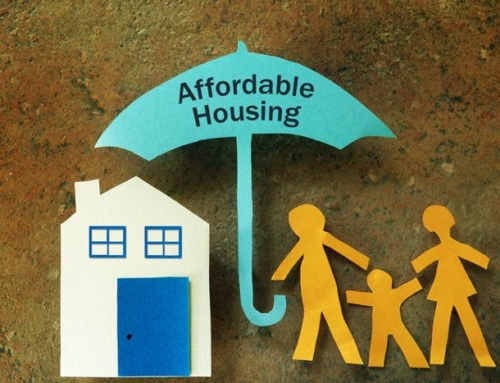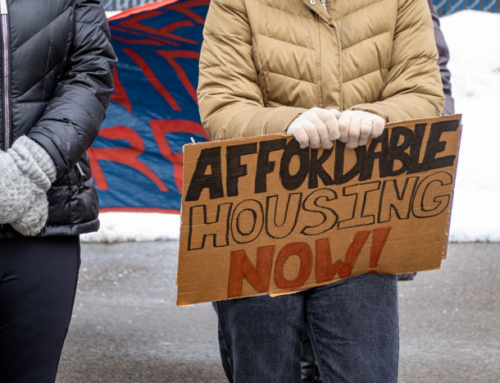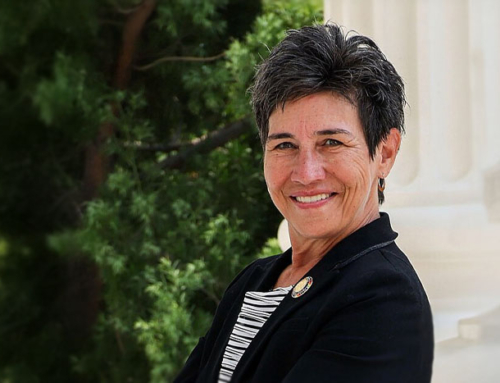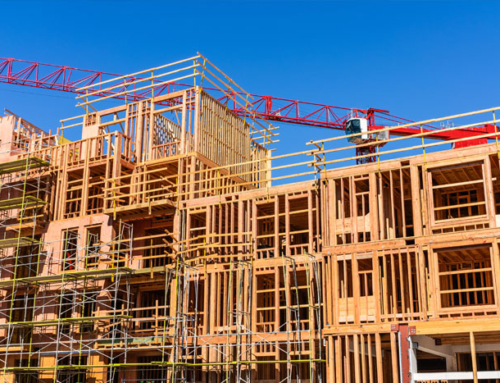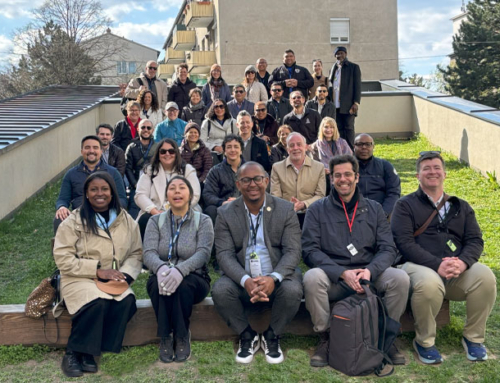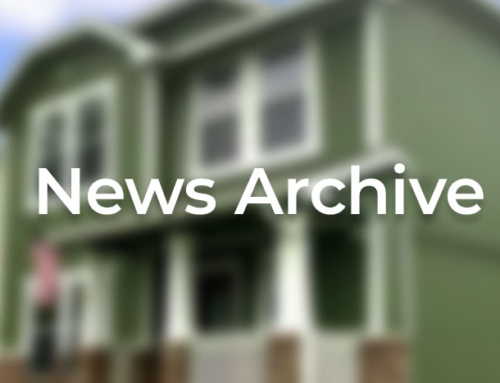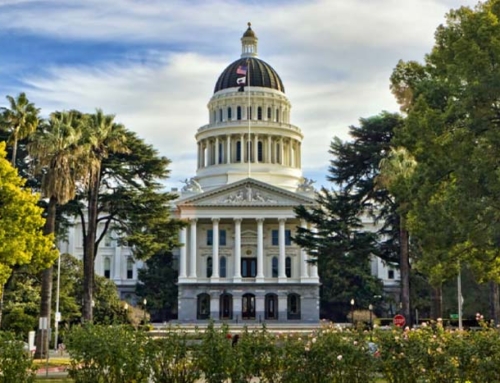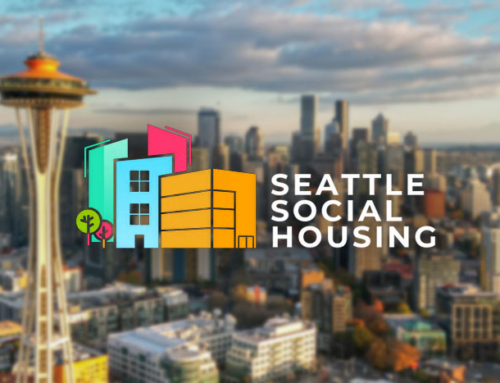May 24th marked the last day for each house in the Legislature to pass bills introduced in that house, with many housing and homelessness bills continuing to be in play this session, including a bill to authorize more affordable housing funding through the November 2024 ballot and modify the “builders remedy” law. Notable bills now dead include those related to repealing Housing First requirements, banning encampments near schools, and establishing a social housing authority.
The following bills made it to their second house by the deadline. Bills with an asterisk (*) denote second-year bills. Bills have until August 31 to pass their second house, after which they must be signed or vetoed by the Governor by September 30.
Produce Housing for All
- AB 1657 (Wicks, D-Oakland)* would authorize the $10 billion Affordable Housing Bond Act of 2024 to replenish and expand the state’s affordable housing programs, including affordable rental housing for lower-income families, homeownership opportunities, and supportive housing for people experiencing homelessness.
- AB 1893 (Wicks, D-Oakland) would modify the infamous “builders remedy,” the law that states that if a jurisdiction does not have a “substantially compliant” housing element, jurisdictions cannot use its own zoning or general plan standards to disapprove any housing project that meets the 20% affordability requirements. This bill is intended to make the tool more accessible in cities that continue to find paths to deny these projects and attempts to put guardrails on allowable densities for such projects.
- AB 2728 (Gabriel, D-Encino) updates SB 4 by requiring the jurisdictions to develop a plan in the housing element that incentivizes and promotes the production of very low, low-, and moderate-income housing on land owned by faith-based institutions and independent institutions of higher education. Jurisdictions will be required to track progress as part of their annual progress report and requires HCD to develop a list of state grants to support such development.
- AB 2909 (Santiago, D-Los Angeles) would expand the Mills Act, an economic incentive program in California for the restoration and preservation of qualified historic buildings by private property owners to further incentivize the conversion of commercial buildings to residential uses. Specifically, the bill would make buildings that are at least 30 years old and located in commercial zones eligible for Mills Act contracts and require that property tax savings be reinvested in retrofitting and repurposing existing buildings to create new residential rental units.
- SB 440 (Skinner, D-Oakland)* would authorize two or more local governments to establish a regional housing authority to raise, administer, and allocate funds and provide technical assistance for affordable housing development.
- SB 937 (Wiener, D-San Francisco) would temporarily defer cities’ collection of development fees (also known as impact fees), allowing more housing projects to pencil out. The legislation also extends entitlements, allowing projects on pause due to high interest rates to retain a key permit until market conditions improve. SB 937 provides builders with the flexibility to navigate challenging market conditions while protecting a key source of revenue for local governments.
- SB 1210 (Skinner, D-Oakland) would reduce the cost of housing by lowering and capping utility hook-up fees, such as for water, sewer, electrical, and gas service, on all new housing units. Currently, hook-up fees for electric, gas, sewer, or water service can add tens of thousands of dollars to the cost of each housing unit, including ADUs. Under SB 1210, each utility hook-up fee would be capped at 1% of the cost of the building permit value of the housing unit.
- SB 1211 (Skinner, D-Oakland) would allow more detached ADUs on properties with multifamily housing. For example, a property with 24 apartments would be eligible to add a minimum of two and up to six detached ADUs (space permitting). In addition, if a property owner decides to replace a carport or driveway with an ADU, they would not be required to replace that parking.
Preserve Vulnerable Housing
- AB 1789 (Quirk-Silva, D-La Palma) would expand the California Housing and Community Development Department’s (HCD) Portfolio Reinvestment Program by authorizing the provision of loans and grants for rehabilitating projects that are at least 15 years old and have insufficient access to private/public resources to complete necessary rehabs. This bill would give priority to projects that have expired covenants or covenants that have less than ten years remaining or are otherwise at risk for conversion.
- AB 2533 (Juan Carrillo, D-Palmdale) would create an amnesty program for unpermitted ADUs, allowing them to be brought up to housing code standards and legalization without significant penalty.
- AB 2926 (Kalra, D-San Jose) requires that a project with an expiring affordability covenant must sell to a qualified preservation buyer.
Promote Equity and Inclusion
- AB 1788 (Quirk-Silva, D-La Palma) would establish homeless adult and family multidisciplinary teams in each county to expedite outreach and services to individuals experiencing homelessness, additionally allowing the sharing of confidential information to coordinate supportive services.
- AB 1840 (Arambula, D-Fresno) includes undocumented persons in the definition of a first-time homebuyer for CA Dream for All.
- AB 3093 (Ward, D-San Diego) would formally require that the state consider how housing assistance, policies, and goals affect people experiencing homelessness in Statewide Housing Plan process.
- SB 1396 (Becker, D-Menlo Park) would extend exemptions under the California Environmental Quality Act (CEQA) for homeless shelters and Low-Barrier Navigation Centers, which are streamlined access points designed to reduce obstacles for unhoused individuals seeking shelter and services. The bill would also broaden the scope of state programs under Housing First policies to include emergency shelter or interim housing services.
Prevent Displacement
- AB 653 (Reyes, D-San Bernardino)* would create the Housing Voucher Utilization Program to provide resources that increase voucher utilization through housing navigation, landlord incentives, and security deposits, and to collect better data on the success of voucher holders in finding a home.
- AB 1333 (Ward, D-San Diego)* prohibits the bulk sale of two or more parcels of single-family homes to defined institutional investors, granting families and individuals the same opportunity to purchase homes that would otherwise be sold directly to institutional investors.
Protect Tenants and Small Landlords
- AB 2801 (Friedman, D-Burbank) revisits security deposit regulations, tightening the criteria for landlords’ claims to justify not returning a deposit and emphasizing the need for landlord transparency with photographic evidence of repairs or cleanings that justify the use of a deposit.
- AB 2304 (Lee, D-Milpitas) closes a loophole related to disclosure when tenants are party to a civil eviction process. The bill ensures that tenants are not unfairly penalized on rental applications if they have won their civil eviction cases.
- AB 2347 (Kalra, D-San Jose) provides eviction misservice protections, extending time for the defendant of an eviction notice to file a response.
- SB 924 (Bradford, D-Inglewood) eliminates the sunset date of a current law that requires affordable housing landlords to offer tenants the option of having their rental payments reported to consumer reporting agencies to help build credit. Current law provisions expire on January 1, 2025.
The following notable bills did not make it out of their house of origin by the deadline and are dead for this session.
- AB 2417 (Alanis, R-Modesto), a Republican-sponsored bill, would have repealed Housing First requirements, thereby removing the requirement on those state agencies and departments to incorporate core components of Housing First.
- AB 2881 (Lee, D-Milpitas) re-introduced the previously vetoed Social Housing Act. The legislation would have established the California Housing Authority to produce mixed-income housing that is affordable and financially self-sustaining. Social housing is defined as, amongst other criteria, housing where residents are granted strong tenant protections and have the right to participate directly and meaningfully in decision-making affecting the operation and management of their housing units.
- AB 2813 (Aguiar-Curry, D-Davis) was a clean-up bill to establish a citizens’ oversight committee for ACA 1, a November 2024 ballot measure that would authorize local jurisdictions to levy, impose, extend, or increase taxes that could fund public infrastructure, affordable housing, or permanent supportive housing, if the proposition proposing that tax is approved by 55% of the voters in that local jurisdiction. Asm Aguiar-Curry has agreed to remove other taxes and fees from ACA 1 to respond to concerns from advocates that the inclusion of revenues other than bonds would tank the measure and is looking for another vehicle to include such language.
- SB 1011 (Jones, R-San Diego) would prohibit encampments within 500 feet of schools, open spaces, and major transit stops. It would also have banned camping on sidewalks if shelter space is available, would have required cities or counties to give an unhoused person 72-hour notice before clearing an encampment, and mandated “enforcement personnel” to provide information about homeless shelters in the area. This bill was controversial, given its potential to criminalize homelessness further.
- SB 1227 (Wiener, D-San Francisco) would have exempted applicable projects within the downtown revitalization zone of the City and County of San Francisco from CEQA for ten years and allowed for a partial welfare tax exemption to certain rental housing projects built after January 2025.
© LeSar Holdings/LeSar Development Consultants. All Rights Reserved. Please be advised that any republishing of copyrighted material provided by our organization, in whole or in part, requires prior written authorization. For permission, please reach out to [email protected]. We appreciate your understanding and compliance in upholding copyright laws.






